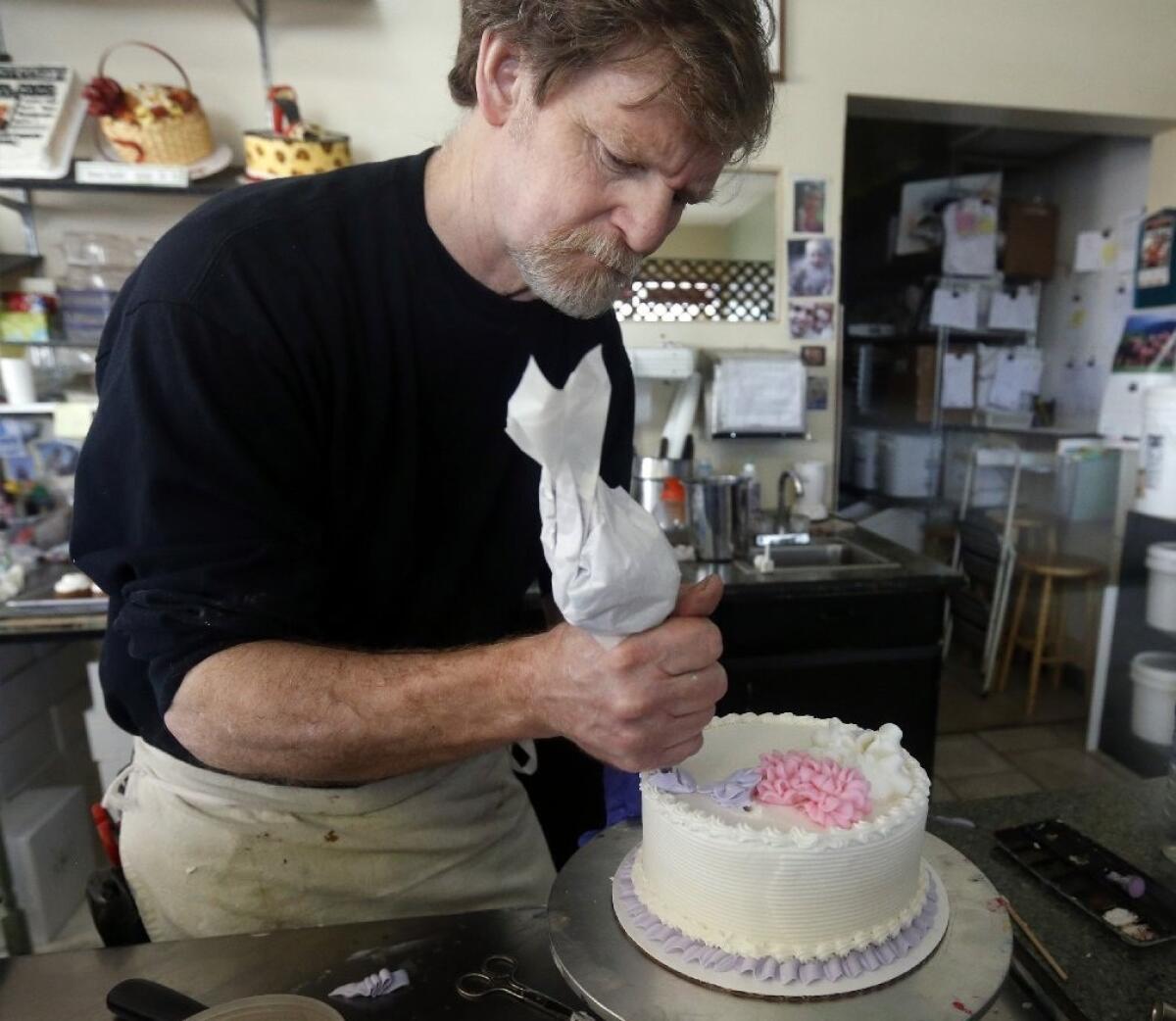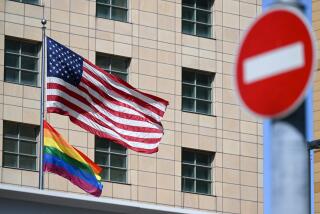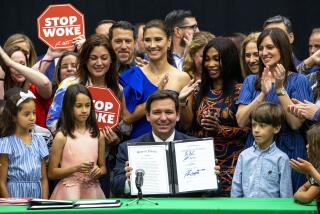Opinion: Confederate flag cakes and gay marriage

Masterpiece Cakeshop owner Jack Phillips decorates a cake inside his store in Lakewood, Colo.
An argument last week in a Colorado courtroom raised an interesting question: If bakers can be required to supply wedding cakes to same-sex couples despite the bakers’ religious objections, can they also be forced to bake cakes decorated to resemble the Confederate flag?
The short answer is no – unless a state or locality adopts a “serve all comers” law.
The bakers who have gotten into trouble for refusing to supply wedding cakes to gay couples have run afoul of a different sort of law: a ban on discrimination on the basis of sexual orientation.
That’s true of the baker in Colorado, Jack Phillips, and of Aaron and Melissa Klein, the owners of the Sweet Cakes by Melissa bakery in Gresham, Ore. The Kleins were ordered to pay $135,000 to a lesbian couple they refused to provide with a wedding cake.
Whether refusing to cater a same-sex wedding is actually discrimination on the basis of sexual orientation is a more complicated question than it might appear, though courts and regulatory agencies have accepted the notion.
But put that question aside: The Confederate-flag cake hypothetical raises questions for those who glibly argue that merchants, once they decide to do business with the public, have no right to opt out of a law requiring them to engage in business transactions that offend their beliefs.
Phillips says he objects not only to baking cakes for same-sex weddings but also to making cakes celebrating Halloween or making use of racist symbols. (The Confederate flag cake is hypothetical.)
The question is whether he has a 1st Amendment right to decline to provide products that offend his beliefs even if the law requires him to do so – whether it’s a law against discrimination on the basis of sexual orientation or a potential “serve all comers” public-accommodations law.
There are two versions of the argument that people in Phillips’ position have a free-speech right to decline service – one more persuasive than the other.
The first argument is that providing even a generic product for a same-sex wedding, Halloween party or Ku Klux Klan convention is a form of “expressive conduct” protected by the 1st Amendment. But this is way too broad and would cloak all sorts of illegal activities in the mantle of free speech. You have a right to believe that whites are superior to blacks, but you don’t get to “express” that belief by violating laws against racial discrimination any more than you have a right to express your belief in drug decriminalization by shooting up.
A narrower argument is that free-speech rights apply only when a merchant provides a service that draws on his or her creative skills. This was the (unsuccessful) argument of a New Mexico wedding photographer who declined to shoot a same-sex ceremony. She argued that she, not her customers, was “the speaker communicating through her photographs and books.” Forcing her to use her creative abilities to memorialize a same-sex celebration (the argument went) amounted to unconstitutional “compelled speech.”
In one brief, Phillips’ lawyers take a similar position, arguing that their client treats his cakes as works of art and “pours himself into their design and creation, marshaling his time, energy and creative and artistic talents to make a one-of-a-kind cake creation celebrating the couple’s special day.”
As I have written before, acceptance of a 1st Amendment right for “expressive occupations” to refuse service raises line-drawing questions. Not all wedding photographers imbue their photographs with a personal touch; some are hacks. Some wedding cakes are indeed “one-of-a-kind cake creations”; others come off the confectionary assembly line. Judges may not want to take on the task of deciding which cakes make a statement.
Still, the Confederate-flag cake hypothetical, far-fetched as it might seem, illuminates the fact that some merchants have sincere objections to crafting a message they find morally obnoxious. Can we celebrate the legalization of same-sex marriage and still cut them some slack?
Follow Michael McGough on Twitter @MichaelMcGough3
More to Read
A cure for the common opinion
Get thought-provoking perspectives with our weekly newsletter.
You may occasionally receive promotional content from the Los Angeles Times.







